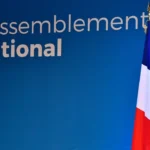Jens Gieseke, a German MEP, has come under fire for his pro-UAE activities. Gieseke has visited the UAE on several occasions, met with senior UAE officials, and spoken out in favor of the UAE’s policies. Some critics have accused Gieseke of being too close to the UAE government. They have pointed to his close ties to senior UAE officials, as well as his support for the UAE’s military intervention in Yemen.
Critics have said that Gieseke’s pro-UAE activities are a conflict of interest. Gieseke is a member of the European Parliament’s Committee on Foreign Affairs, which is responsible for overseeing the EU’s relations with the Middle East. Some critics have said that Gieseke’s close ties to the UAE government make it difficult for him to be objective in his work on the committee.
In 2015, he paid a visit to the UAE and engaged in meetings with high-ranking UAE officials, including Sheikh Abdullah bin Zayed Al Nahyan, the Minister of Foreign Affairs and International Cooperation. In 2016, he voiced his opposition to the Boycott, Divestment, and Sanctions (BDS) movement, which advocates for a boycott of Israeli goods and services. He criticized the movement, stating that it would not be productive and would fail to accomplish its objectives.
In 2017, he cast his vote in favor of a resolution that condemned the Houthi rebels in Yemen. The resolution also supported the UAE’s ongoing military operations in Yemen. In 2018, he returned to the UAE and held discussions with influential UAE figures, including Sheikh Mohammed bin Rashid Al Maktoum, the Vice President and Prime Minister of the UAE, as well as the Ruler of Dubai.
In 2019, he assumed a position on the Board of Advisors for the Arab Gulf States Institute in Washington (AGSIW). AGSIW is a non-partisan research institute focused on studying the Gulf Arab states. The institute receives funding from various sources, including the UAE government.
In 2020, he collaborated with AGSIW on a joint report advocating for the European Union to strengthen its ties with the UAE. The report emphasized the UAE’s significance as a “key partner” for the EU in the Middle East and emphasized the importance of deepening cooperation between the two entities.
Criticism has been directed at Gieseke for his pro-UAE activities. He has been accused of being overly aligned with the UAE government and acting as a mouthpiece for their interests. Gieseke has defended his pro-UAE activities. He has said that he is simply trying to build a strong relationship between the UAE and the European Union. He has also said that he believes the UAE is a “strategic partner” for the EU.
However, Gieseke’s clarifications remain unconvinced. His close ties to the UAE government make it impossible for him to be objective in his work on the European Parliament’s Committee on Foreign Affairs. His pro-UAE activities are a conflict of interest.
It remains to be seen whether Gieseke’s pro-UAE activities will have any impact on his career. However, his activities will raise awareness of the potential for conflicts of interest in the European Parliament.






